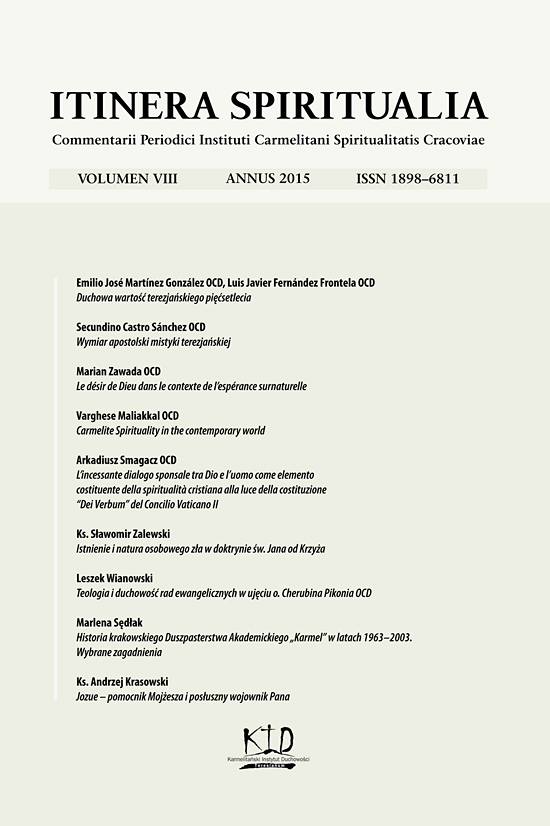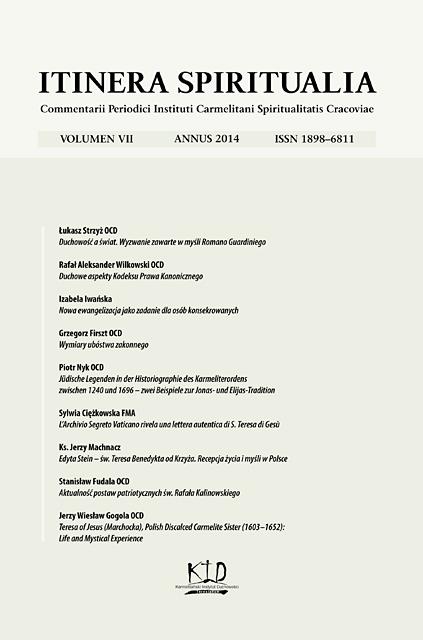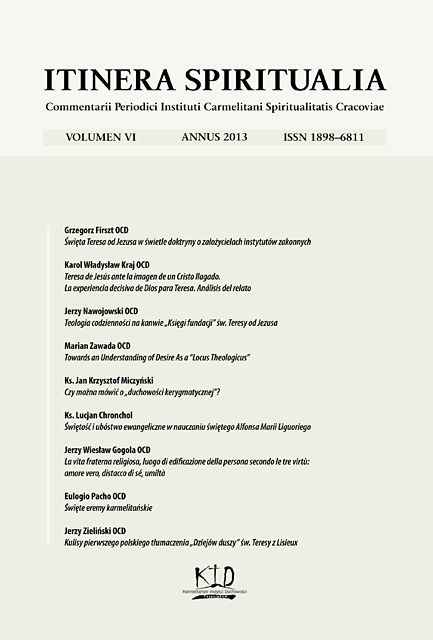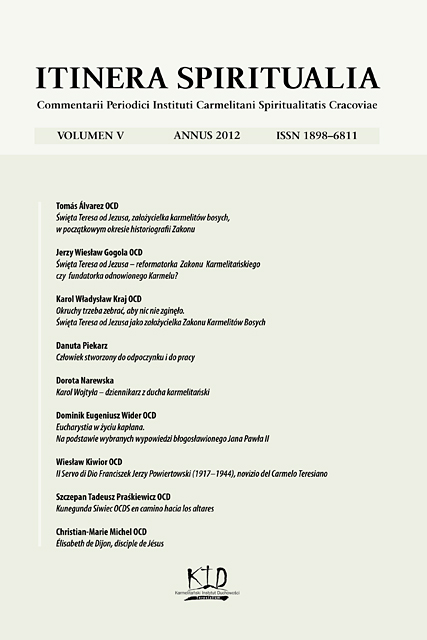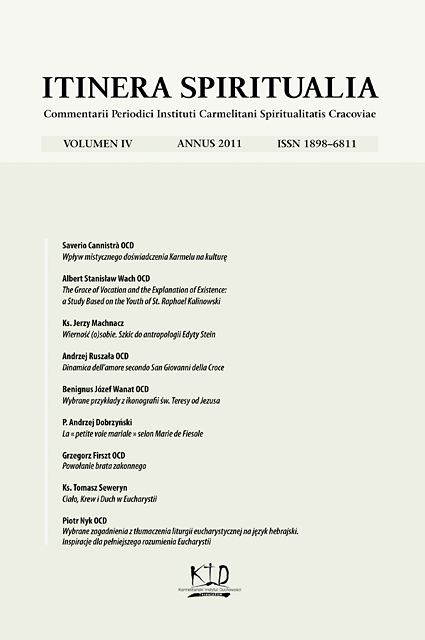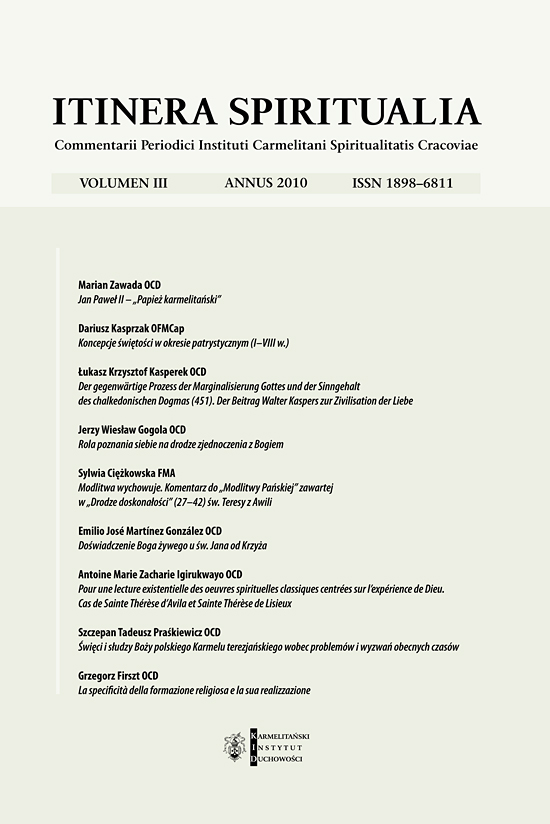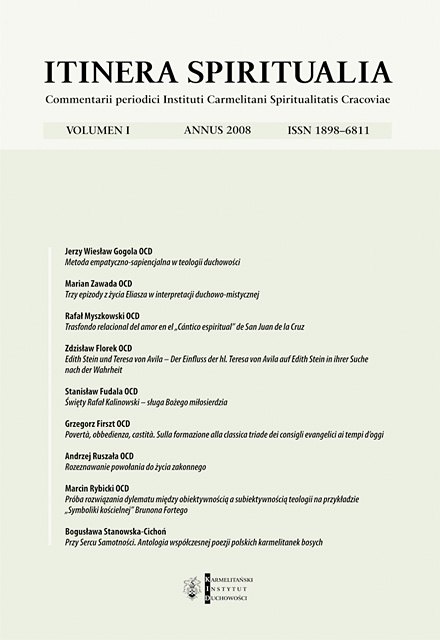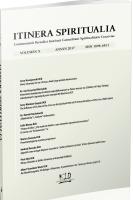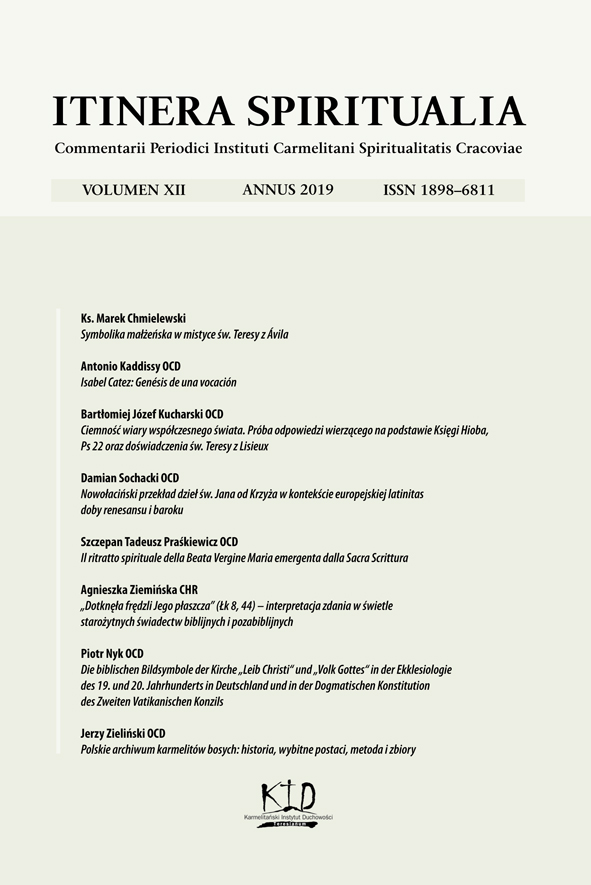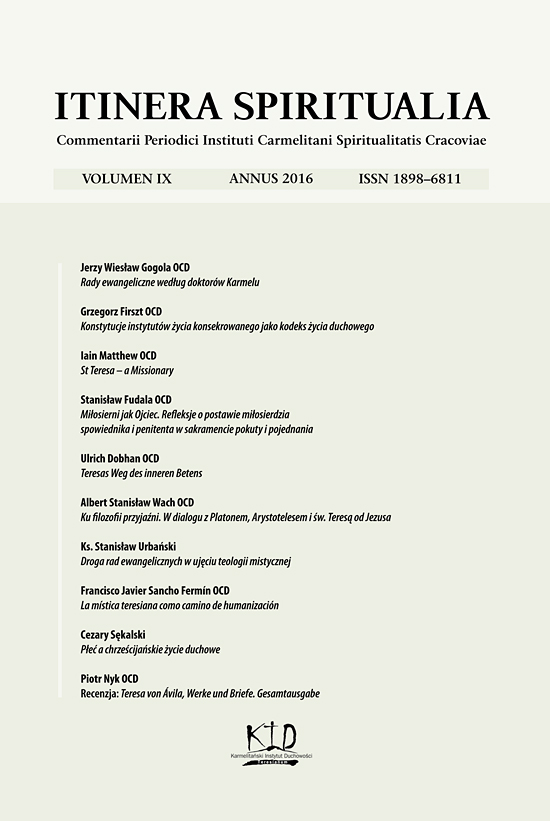
The Evangelical counsels according to the Doctors of Carmel
Rady ewangeliczne według doktorów Karmelu
Keywords: evangelical counsels; doctors of Carmel; consacrated life; mystical experience
The central idea of the article is to show that the thought of the doctors of Carmel (John of the Cross, Teresa of Avila, Teresa of the Infant Jesus) about the evangelical counsels is not outdated but it have had a good influence on the teaching of the Second Vatican Council.
More...
